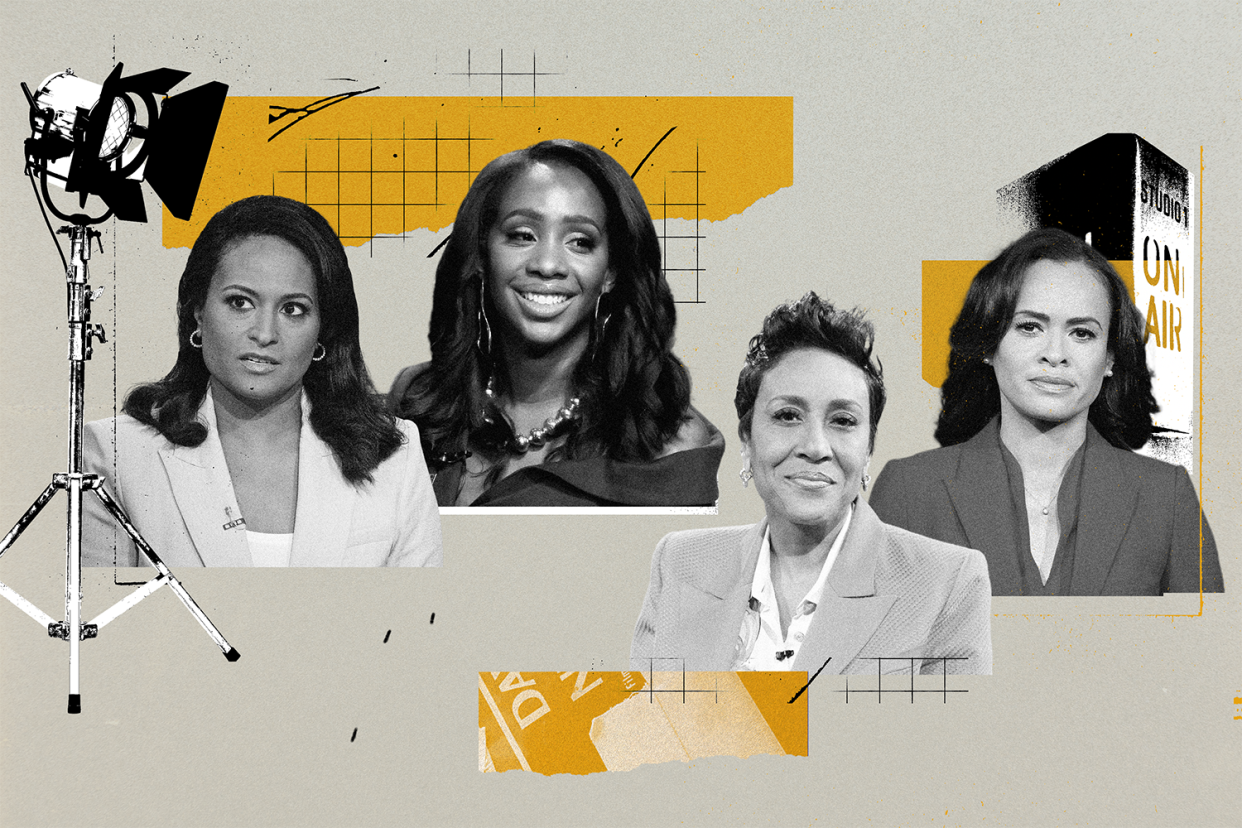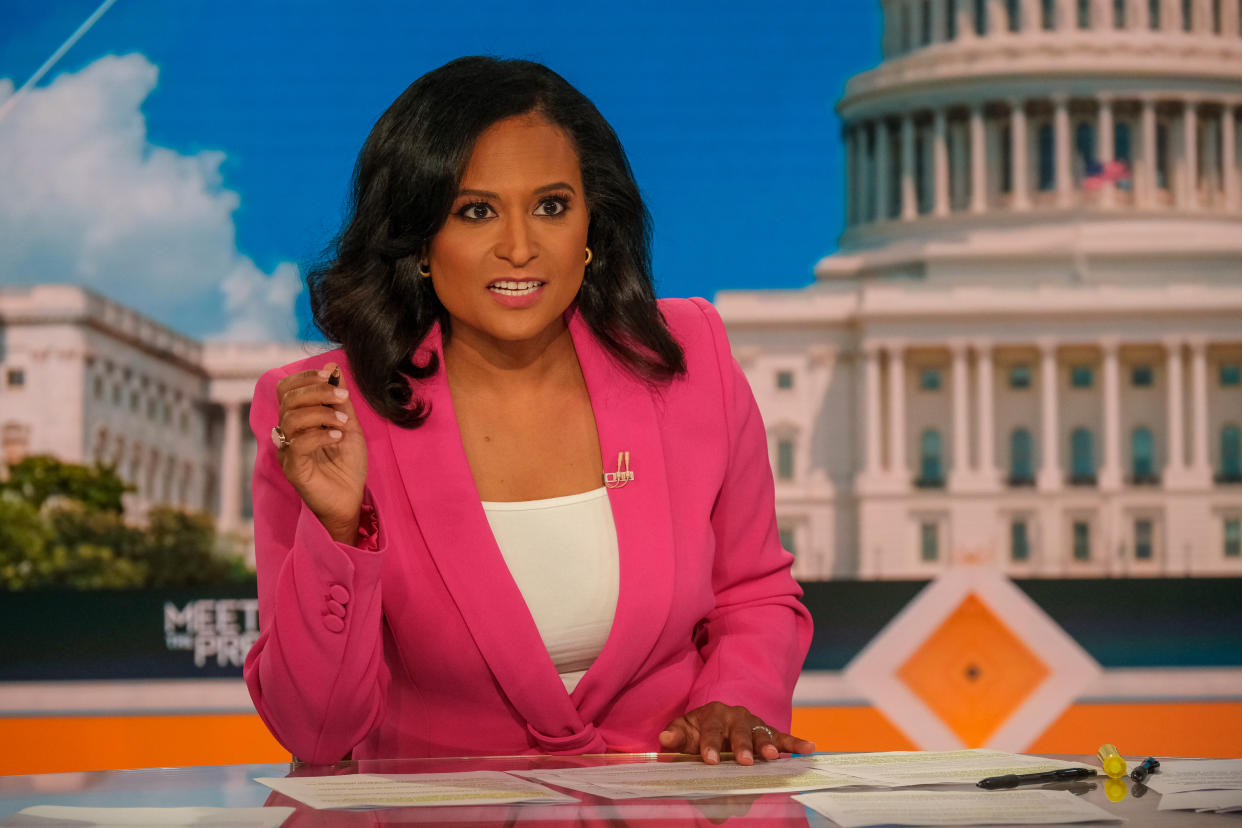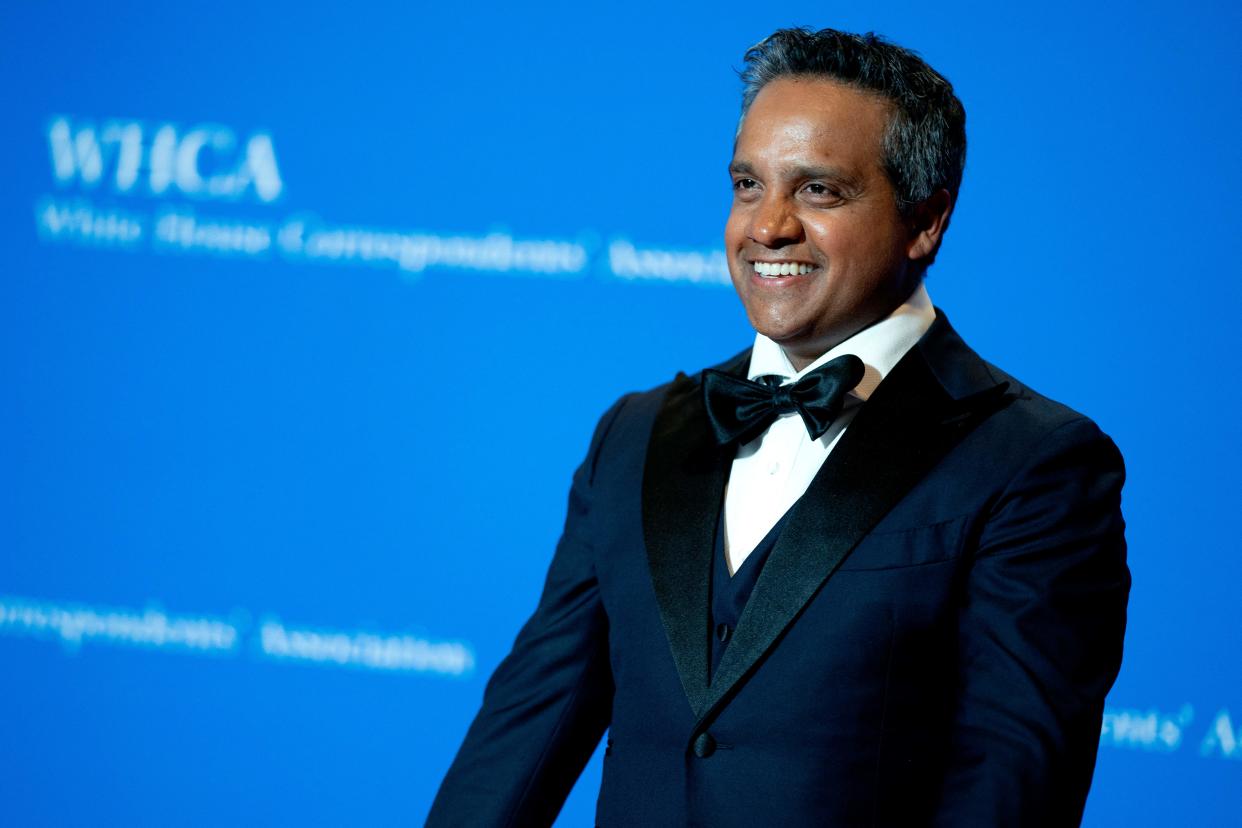Deborah Roberts, Kristen Welker and their Black female peers are more visible than ever on TV news. Why experts say this isn't just 'a moment.'

ABC News announced on Tuesday that longtime correspondent Deborah Roberts will co-anchor 20/20, the network's storied primetime news magazine, with fellow anchor David Muir.
The announcement marks a profound moment in which Black women are ascending to high-profile roles in mainstream broadcast news, from morning shows like Today, where Sheinelle Jones co-hosts, and Good Morning America with co-anchor Robin Roberts to primetime shows like CNN NewsNight, which Abby Phillip hosts, and ABC News's World News Tonight, which Linsey Davis hosts on Sundays.
Black women also hold senior executive roles in TV news, such as ABC News president Kim Godwin and MSNBC president Rashida Jones.
Decades after the 1968 Kerner Commission report excoriated the media for the lack of Black journalists and how that affected news coverage of racial conflicts, stating that the profession "has been shockingly backward in seeking out, hiring, training and promoting" Black men and women, media experts acknowledge that progress has been made.
"The broadcast news industry is making significant strides in making sure that the people who present the news are a true reflection of the country and a true reflection of local communities across the country," Dan Shelley, president and CEO of the Radio Television Digital News Association (RTDNA), told Yahoo News. "But there's still a long way to go for a full representation."

But that progress has taken time. Before Kristen Welker signed off following her first episode hosting NBC's Meet the Press on Sept. 17, she acknowledged the gravity of her debut broadcast as the first Black journalist to moderate the show during its seven-decade history.
"It is an incredible honor to be sitting in this chair, and I feel the huge responsibility it carries," Welker said. "I also want to recognize all of the women, all of the people of color who've been pathfinders to make this moment possible."
She went on to note that now "all five Sunday shows are moderated or co-moderated by women." That list includes Dana Bash, co-anchor of CNN's State of the Union; Shannon Bream, the anchor of FOX News Sunday; Margaret Brennan, the moderator of CBS's Face the Nation and former White House press secretary Jen Psaki, who hosts Inside with Jen Psaki on MSNBC.
"There has been progress," Ava Thompson Greenwell, a professor at Northwestern University's Medill School of Journalism, told Yahoo News. "But it's slow and it's fleeting. … The nature of history is that most things don't change overnight. It's gradual. And I think that's what we see in these particular situations."
What the data shows
It's not just Black women rising up the ranks in TV news. Other journalists of color are also getting behind the desk, including CNN’s Manu Raju, who is Indian American and the host of Inside Politics on Sundays, and Lawrence Jones, who joined Fox & Friends as a permanent co-host on Sept. 18, making him the youngest Black co-host on cable news.

"I feel like when it comes to the couch, you really feel America," Jones said on the Sept. 14 show. "We have this incredible opportunity to represent our audience every single day on the couch, and I'm so grateful, humbled."
Also at CNN, longtime host Victor Blackwell will host his own weekend morning show.
"The broad range of diversity we are showcasing in our programming is significant, strategic and reflects our audiences," CNN told Yahoo News in a statement. "We are especially proud that our new programming lineup reflects our commitment to investing in and developing our journalists."
Racial diversity efforts have been under scrutiny in recent years from politicians, executives and even the courts. Critics who impugn such efforts have said that hiring should be color-blind and solely about merit.
Shelley told Yahoo News that diversity is "critical" in newsrooms, especially at the local level. A 2022 RTDNA survey of local news managers across the country found that nearly 30% of newsrooms consist of people of color, the highest number the group has recorded. Compared to the year 2000, Shelley said, the number constitutes a nearly 10% increase in minority newsroom employees – but that's over two decades.
"Your newsroom has to be as close as possible to a true reflection of the makeup of your community," he said, "so that unheard voices can be heard in news coverage, so that underreported, undercounted cultures and groups of people, people of color in particular, those points of view can be represented and those stories can be told. It's just absolutely essential."
A Pew Research Center study released Tuesday indicates that Black people are wary of how they're covered in the news. The study found that almost two-thirds (63%) of the nearly 5,000 Black people Pew surveyed said that "news about Black people is often more negative than news about other racial and ethnic groups," while half of the respondents said news "coverage is often missing important information."
Former local TV news anchor Andrea Morehead, who led a primetime broadcast at Indianapolis, Ind., news station WTHR, where she worked for over two decades, said she recognized the importance of her role when she joined the network in 1999.
"I was always keenly aware of what my role in the media would be and that I was supposed to be in that room so that I could be the voice for those of us who typically don't have a voice on a larger scale," Morehead told Yahoo News. “So it was very intentional for me that I walked in being a journalist, but I also walked in being a Black woman and being authentic to who I am and understanding the nuances of our community, understanding the culture and being able to be at the table to speak up when necessary."
But Morehead, who left the network in 2021 and sued for discrimination before ultimately dropping the lawsuit, faced myriad challenges over the course of her career, much of which she says stemmed from a lack of representation at the more senior levels of the newsroom.
During her more than 20-year tenure at WTHR, Morehead says she never saw Black people in positions of authority and power in the newsroom and only had executive producers who were white.
"That in and of itself is not necessarily bad," she said, "but it's not necessarily good either, because they were not intentional about making sure that our leadership represented the community that we serve. It's OK to have us in front of the camera, but again, the power is in the pen. The power is in the news director, the power is in the general manager, the power is in the sales director."
TEGNA Inc., the broadcast media company that owns WTHR, declined to comment on Morehead's account. WTHR hired Nicole Block, a Black woman, as its news director last year.
'I hope it's not just a moment'
Greenwell stresses the importance of representation both on and off camera in her book, Ladies Leading: The Black Women Who Control Television News.
"As a former on-air reporter myself, I realized I had not worked with that many Black women who were in management positions," said Greenwell, who previously worked at WFLA-TV in Tampa, Fla., WCCO-TV in Minneapolis, Minn. and WEHT in Evansville, Ind. "And I believe truly that it's where that invisible power lies."
Greenwell pointed to news leaders such as Yvette Miley, executive vice president of Diversity, Equity and Inclusion for the NBCUniversal News Group, and Terri Cope-Walton, general manager of Jacksonville, Fla., news stations WJXT-TV and WCWJ-TV, along with Godwin and Rashida Jones, as a promising sign.
"I hope it's not just a moment," she explained, "I hope it's momentum."
